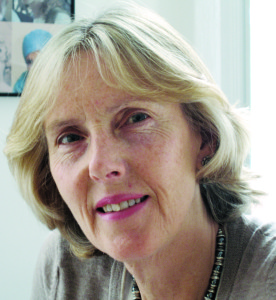Healthcare is complex and no single government can manage alone
 Calls for universal health coverage resonate strongly in Central and Eastern Europe. In countries such as Latvia, Bulgaria, Romania, and Lithuania patients struggle to access essential services and treatments, and doctors are frustrated by insufficient resources to deliver optimum care. The high cost of medicines eats into health budgets—and the pockets of patients. The need for co-payments is common. Limited and inequitable access to health services is one of the factors behind a life expectancy gap of 11 years between the EU’s 28 richest and poorest countries, and a staggering (estimated) gap of healthy life expectancy of 22.1 years for men and 19.7 for women. Unsurprisingly, health reform is high on the political agenda and patient organisations are at the forefront of pushing for change.
Calls for universal health coverage resonate strongly in Central and Eastern Europe. In countries such as Latvia, Bulgaria, Romania, and Lithuania patients struggle to access essential services and treatments, and doctors are frustrated by insufficient resources to deliver optimum care. The high cost of medicines eats into health budgets—and the pockets of patients. The need for co-payments is common. Limited and inequitable access to health services is one of the factors behind a life expectancy gap of 11 years between the EU’s 28 richest and poorest countries, and a staggering (estimated) gap of healthy life expectancy of 22.1 years for men and 19.7 for women. Unsurprisingly, health reform is high on the political agenda and patient organisations are at the forefront of pushing for change.
Last week health reforms in Lithuania were discussed at a roundtable meeting in Vilnius held at the Parliament and convened by the Lithuanian Cancer Patient Coalition (POLA) and the Patient Access Partnership (PACT), the latter being an initiative set up by the Bulgarian National Patients’ Organisation and the European Patient Forum. The meeting was led by Šarūnas Narbutas, President of POLA, and attended by members of the Lithuanian Health Ministry, members of the Lithuanian Parliament, the European Commission, academia, doctors’ organisations, NGOs, industry, medical students, patient organisations, and the media.
Emphasis was put on working with patients from the outset. “If patients are not on board in the political discussions and decisions [on health reform] they will be doomed to failure,” said the health minister Aurelijus Veryga. “We need the help of patient organisations. Not least to support efforts to push the message on the importance of healthy lifestyles,” he said. The results of a public survey had come as “a shock” to him, he said—the majority of respondents to a question on “who is responsible for maintaining your health?” had replied “the health ministry,” not “myself.”
Weak primary care services are a big problem in Lithuania, Veryga underlined. Furthermore, “patients don’t trust family doctors,” he said. This results in undue pressure on secondary care services which are not well structured to cope.
Other problems that Lithuania faces were flagged by Arnoldas Pranckevičius, head of the Representation of the European Commission in Lithuania, who referred to the findings of the recent European Semester Country Specific Report. These include a high reliance on in-patient care—the country has 630 in- patient beds per 100 000 of the population compared with an EU average of 396—and ineffective health promotion and disease prevention strategies. The latter exacerbate the challenge of sustaining Lithuania’s workforce, which is also being undermined by demographic change and high emigration rates. The high level of out of pocket expenses is another concern, said Pranckevičius, for they represent almost one third of current health expenditure (compared to an EU average of 15%).
Corruption in the health sector was cited as a further problem which needed to be tackled by increased transparency on public procurement and joint working with patient organisations to reduce informal payments. “Patients must be seen as responsible for giving bribes as well as doctors for taking them,” said Veryga.
Listening to debate about the problems with access and affordability of care in Central and Eastern European countries with UK ears is salutary; they put our national concerns into perspective. It also brings home the fact that unlike the UK, CEE countries value their membership of the EU highly. “Healthcare is complex and no single government can manage alone,” said secretary general of PACT, Stanimir Hasardzhiev. “Cross country solidarity and co-operation is essential as countries face common health, economic, and demographic challenges. He went on to point out the positive benefits to health of membership of the EU and noted that the recent Eurobarometer survey found that 70% of those polled wanted “more, not less Europe.” Several other speakers spoke equally passionately about the value of EU membership and the need to take Jean Claude Junker’s 5 scenarios for the future of the EU seriously.
Within these scenarios there is the suggestion that the EU should abandon its health competence. Concern about this among patient, health professional and health policy groups in Europe has led over 40 organisations (including the Royal College of Physicians of London) to submit a jointly signed letter to Junker. This sets out clear arguments on why continued EU collaboration on health is essential for Europe and calls for a meeting with him.
As the sole UK participant at a meeting which took place on our election day, it was perhaps inevitable that Brexit should get a fleeting mention. Eyes were cast my way. I struggled to find a good response for I share the view of many in the health sector that Brexit is bad for health. So I thanked them for inviting me and summoned a smile, a shrug, and a brief despairing wave of the hands. Someone said they hoped the UK would find a way to change its mind and the meeting swiftly moved on.
Tessa Richards, The BMJ.
